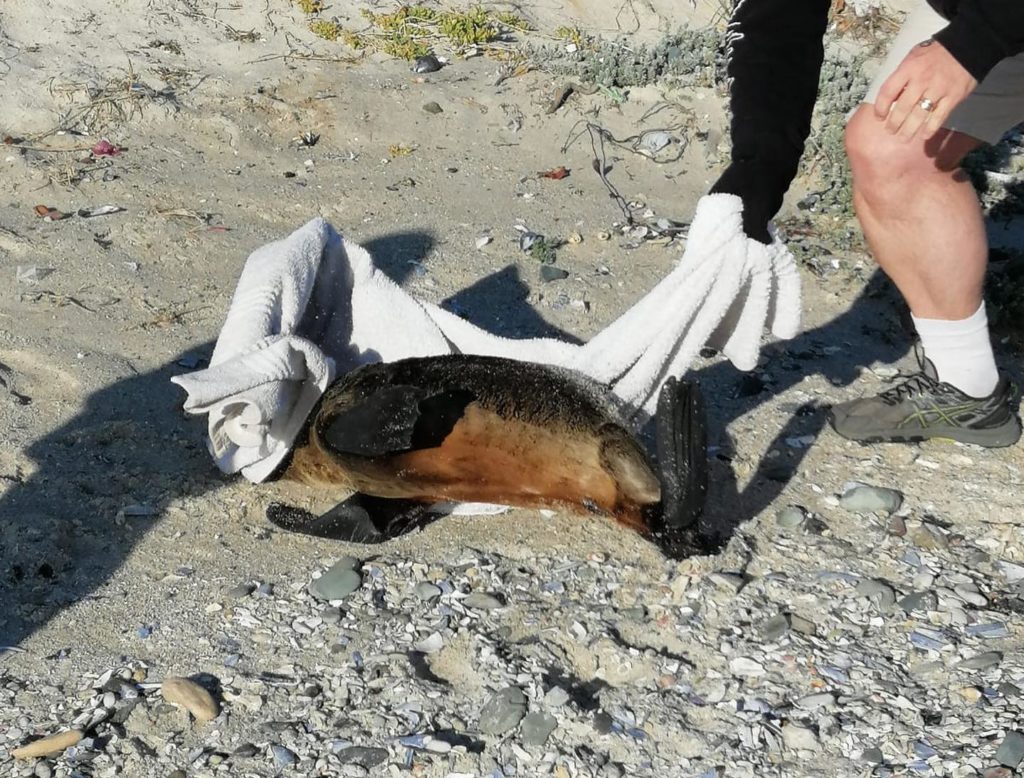Locals across the Cape have been reported increased sightings of dead or injured seal pups on beaches in recent weeks. The Cape of Good Hope SPCA has recently responded to several calls relating to reports of seals in distress, and explained that these sightings are relatively common for this time of year.
“The majority of the calls are originating from the Glencairn and Camps Bay areas and are not uncommon for this time of year,” explained Belinda Abraham, Communications, Resource Development & Education Manager at the SPCA.
“It is seal pup season and many pups and yearlings have sadly fallen victim to the recent rough seas resulting from windy conditions. Pups who have been separated from their mothers by rough seas or any other factor, will eventually strand.”
In October, thousands of pre-term seal carcasses washed up at Pelican Point in Namibia.
“In Cape fur seals, females usually drop their pups fairly synchronously between mid-Nov and early Dec, then mate soon afterwards with males holding harems of multiple females and continue to nurse their pups for another 9 months,” explained Sea Search at the time. “This many dead pups will significantly reduce the numbers of pups born this season and throw off female mating too, impacting two years (at least) of reproduction.”
If you see a baby seal alone and it appears unharmed, Abrahams advises to leave it alone.
“Too many seal pups are taken into captivity because people mistakenly think they have been abandoned. If you find a seal pup that looks fit and healthy, shows no signs of distress and barks or lifts its head upon your approach, you don’t need to worry,” she said.
“If possible, check up on the seal again in 24 hours and call the SPCA if you notice a deterioration in the pup’s condition. It is also helpful if you are able to take a picture or a video to pass on to our wildlife team as this will enable them to make informed decisions regarding the urgency of their response. “
If you notice any obvious injuries and if the seal is retching or coughing, entangled or seems very thin, please call the SPCA straight away on 021 700 4158/9 during office hours or 083 326 1604 after hours.
Abraham says to not pour any water over the seal pup and don’t try to return them to the water.
“Please don’t try to touch the seal, they can give a nasty bite, which will become infected by the bacteria that live in a seal’s mouth,” she added. “Don’t allow dogs or other animals to harass a seal – it could be scared back into the water and washed out to sea by strong currents.”
Picture: Hout Bay Seal Rescue

